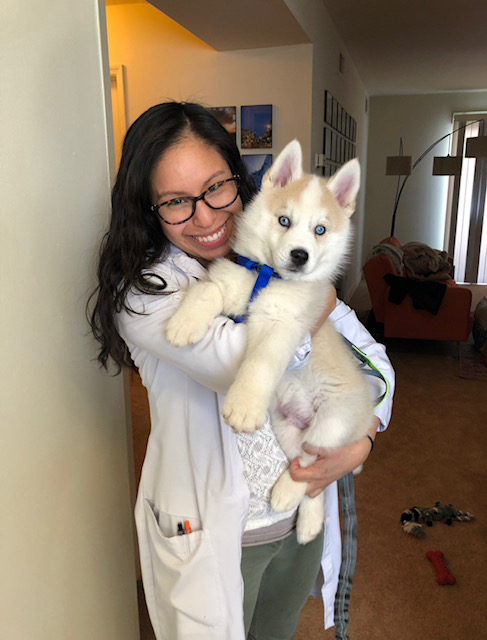Behavioral Health

Behavioral health is a major public health issue in the District of Columbia. Sadly, many of the legislative and regulatory initiatives around behavioral health are tied to other public health concerns, such as opioid addiction, maternal mortality, and health equity.
In partnership with the Washington Psychiatric Society, AMA, and American Psychiatric Association (APA), MSDC works to ensure that patients receive appropriate support for behavioral health issues, that the practice of psychiatry is supported in the District, and that psychiatrists are available to patients in the District.
MSDC was a proud supporter of the Behavioral Health Parity Act of 2017, which enshrined into law that all health plans offered by an insurance carrier meet federal requirements of the Wellstone/Domenici Mental Health Parity and Addiction Equity Act of 2008.
MSDC Statements and Testimony of Behavioral Health Issues
25th Council period information coming soon
Creating Space for What’s Important with Dr. Giselle Plata

There was a considerable amount of background noise, specifically, dogs barking, in speaking with Dr. Plata last month. She was quick to explain that she was at a dog café, Bark Social, in Maryland with Denali, her three-year-old Siberian Husky for the morning.
Denali had been on Dr. Plata’s to do list for many years and in parallel with her drive to become a physician, it may have taken longer than expected, but she adopted her dog and got that M.D.
Dr. Plata was raised in Northern Virginia by Bolivian parents. “Both of my parents are descendants of indigenous people in Bolivia. They are a marginalized group there and my parents knew that their opportunities would be limited if they stayed. So, before meeting, they each made their way to the United States for more educational opportunities.”
Her father left Bolivia after college, where he studied dentistry. Her mother left after high school – the first daughter in her family to leave the country.
The two met after having settled in the United States. Dr. Plata was born in Virginia and has a sister one year her junior and another 14 years younger than she. Her rich cultural heritage has been influential on what has become her life’s work.
Dr. Plata has immense gratitude for her parent’s sacrifices. “There is a lot of pressure as a first-generation American and the oldest child to make the most of the opportunities that are afforded to you. I felt an immense pressure to succeed.”
Today, Dr. Plata uses her experiences and background when working with patients as a psychiatrist. “I meet with young adults who are like me and there are sometimes cases of imposter syndrome that I also experienced and have helped them with through my previous volunteer work mentoring first-generation youth.”
As the name implies, imposter syndrome is a psychological condition in which an individual doubts their skills and talents and fears being exposed as a fraud.
According to Dr. Plata, these feelings can be prominent in first-generation Americans. “I find that I sometimes still need to remind myself that I am where I am because of my hard work. I have earned my place here.”
She works to help other youths realize the same thing in themselves.
Dr. Plata began her education in medicine later than others. “I went to medical school at age 29.” She is currently a child and adolescent psychiatry fellow at MedStar Georgetown University Hospital and will finish next July at which time she plans to focus her work on community pediatric psychiatry.
“In college, I spent time volunteering with youth activities like Big Brother Big Sister programs. I thought it was a great way to give back,” she said. She looks forward to combining her interests in youth development with psychiatry. “I love working with teenagers. They are so unique and inspiring.”
She also looks forward to working with children of color that she shares a similar background. “It’s rewarding to help youth who are going through something similar to what I went through regarding challenges in the cross-cultural transitions between home, school, college and professional life in fields like medicine where there is less representation of minorities.”
Recognizing the challenges that this can pose in her career, she recently found a therapist to work through complicated emotions when confronted with youth that is today’s version of herself at that age. “Life is complicated as a first-generation American. You are living in one culture at home and another at school. It’s a lot to process and work through. I was lucky in that my high school was very diverse. It wasn’t until I got to college at the University of Virginia that I had culture shock and realized that most of those students were growing up in a very different world from mine. Having a therapist this past year has helped, as I've developed personally and matured more as a physician in fellowship training.”
Away from medicine, Dr. Plata likes to expand her horizons. “We traveled back to Bolivia every year when I was growing up and from that, I have always enjoyed traveling.” Dr. Plata also spent time with the Peace Corps. “I remember it being an instant decision when I learned about it. It was during a time when I was very conflicted about career paths and fitting in/feeling as capable as my pre-med peers appeared to be in college,” said Dr. Plata. “Peace Corps sent me to Albania in early 2009 at a time¸ when I needed an out to learn more about myself while engaged in community service and experiencing a completely different culture--and Peace Corps provided all those things and more,” she added.
“I had a goal to visit every country in South America,” she said. Dr. Plata met that goal and has visited each of the 12 South Americans as well as 59 others. “My favorite place is Nepal which I have been to three times. Each time it was a different experience,” she said.
She adopted Denali before the pandemic which turned out to be perfect timing. “He is a certified therapy dog and while it was a lot of work to get him there, now he is a huge source of comfort for others in our volunteer work together, and for me.” With Denali, Dr. Plata was able to take him to visit a senior residence facility where residents were able to meet with him through open windows on ground-level floors. Today she and Denali visit a MedStar hospital and the high school where Dr. Plata went.
She became involved with MSDC through an event invitation. “I kept them on my radar and went to a women’s physicians’ event. I love that MSDC members are all local and in different stages of their careers.” Since becoming involved with the organization, Dr. Plata has helped with webinars for medical students and mentorship.
As she looks forward to what life will be like following her residency, she plans to be thoughtful in her choices to leave room for the things that are most important to her like her family, Denali and adding more countries to her list of those visited.
Do you know a physician who should be profiled in the MSDC Spotlight Series? Submit a nomination to Robert Hay, hay@msdc.org, for a future story. MSDC membership is encouraged for featured physicians.
Sample of Legislation MSDC is Tracking in Behavioral Health
(see the whole list of bills here)
What does it do? The bill requires licensed health providers to complete 2 hours of CME on suicide prevention, assessment, and screening.
MSDC position: MSDC opposes the bill as written as the language does not encourage physician wellbeing or sufficient awareness of suicide prevention.
Current status: The bill had a hearing with the Committee on Health on June 10.
